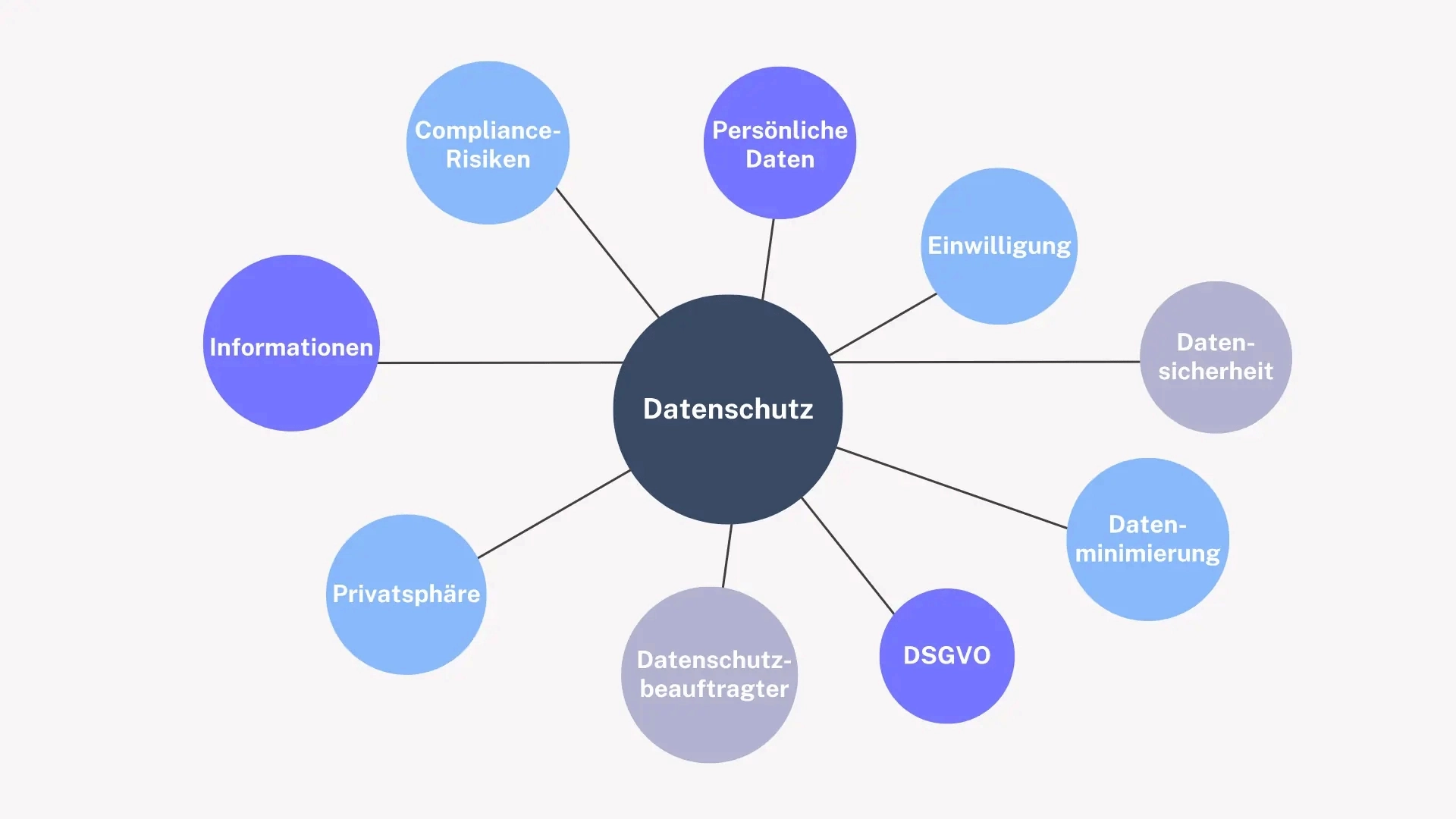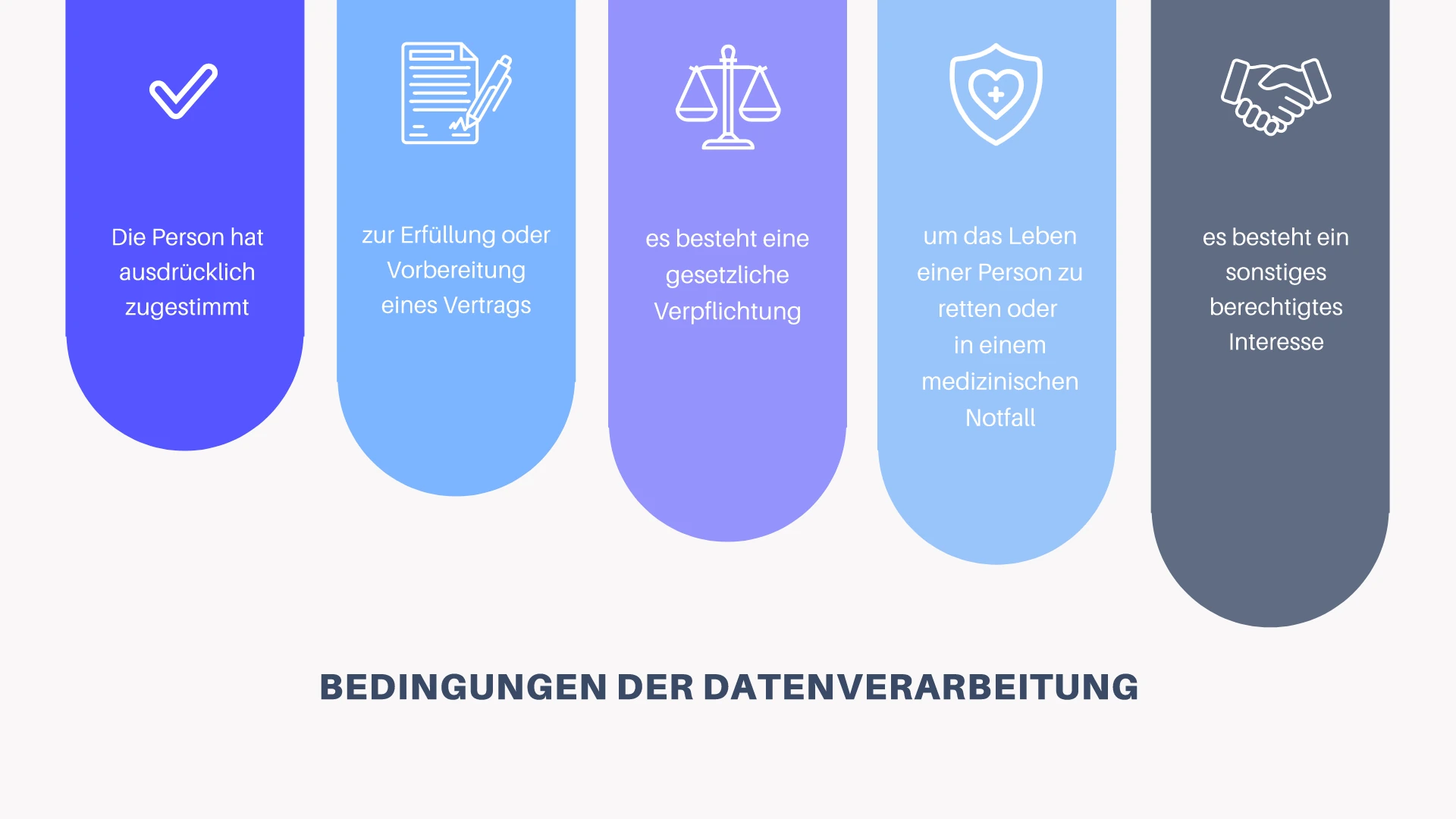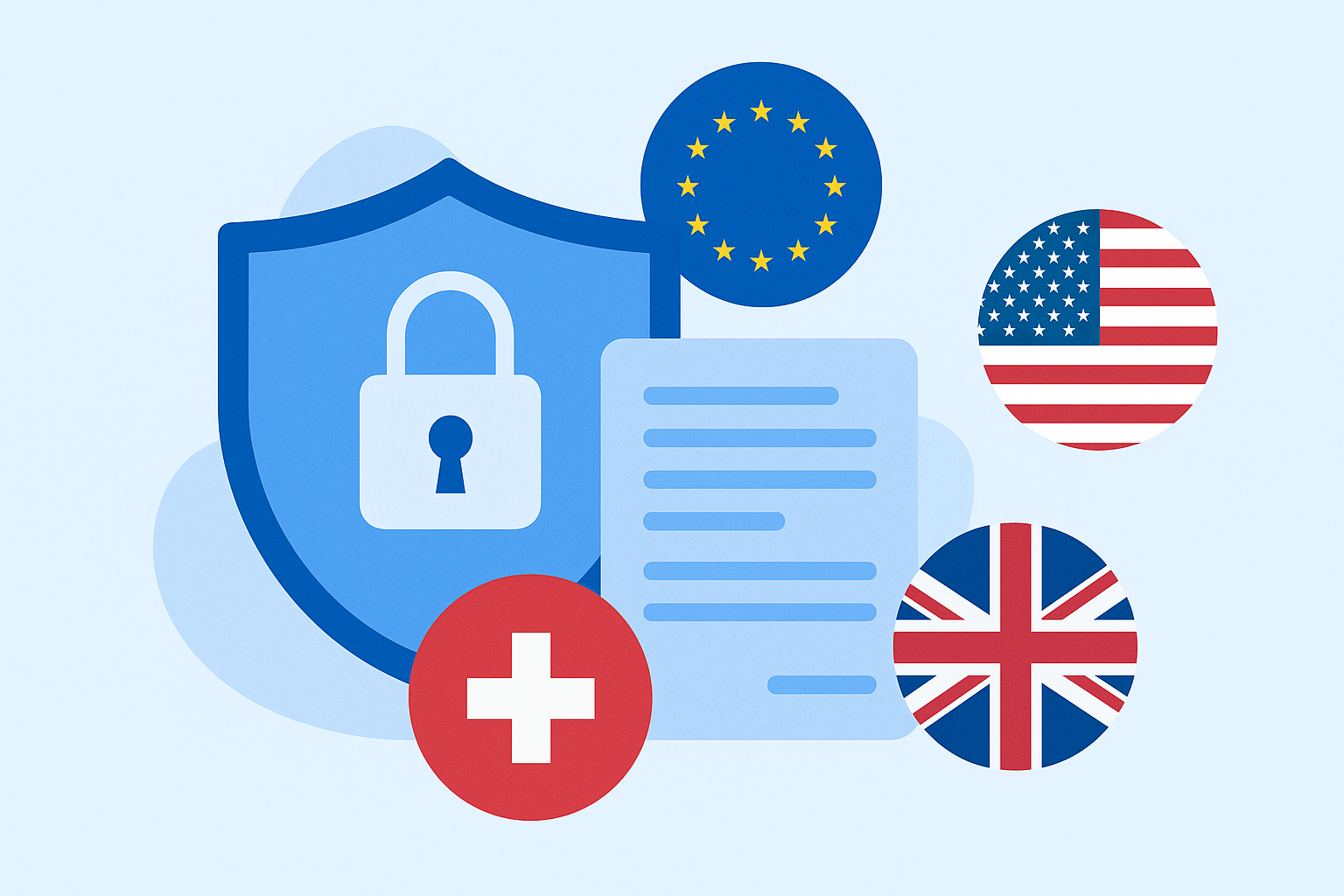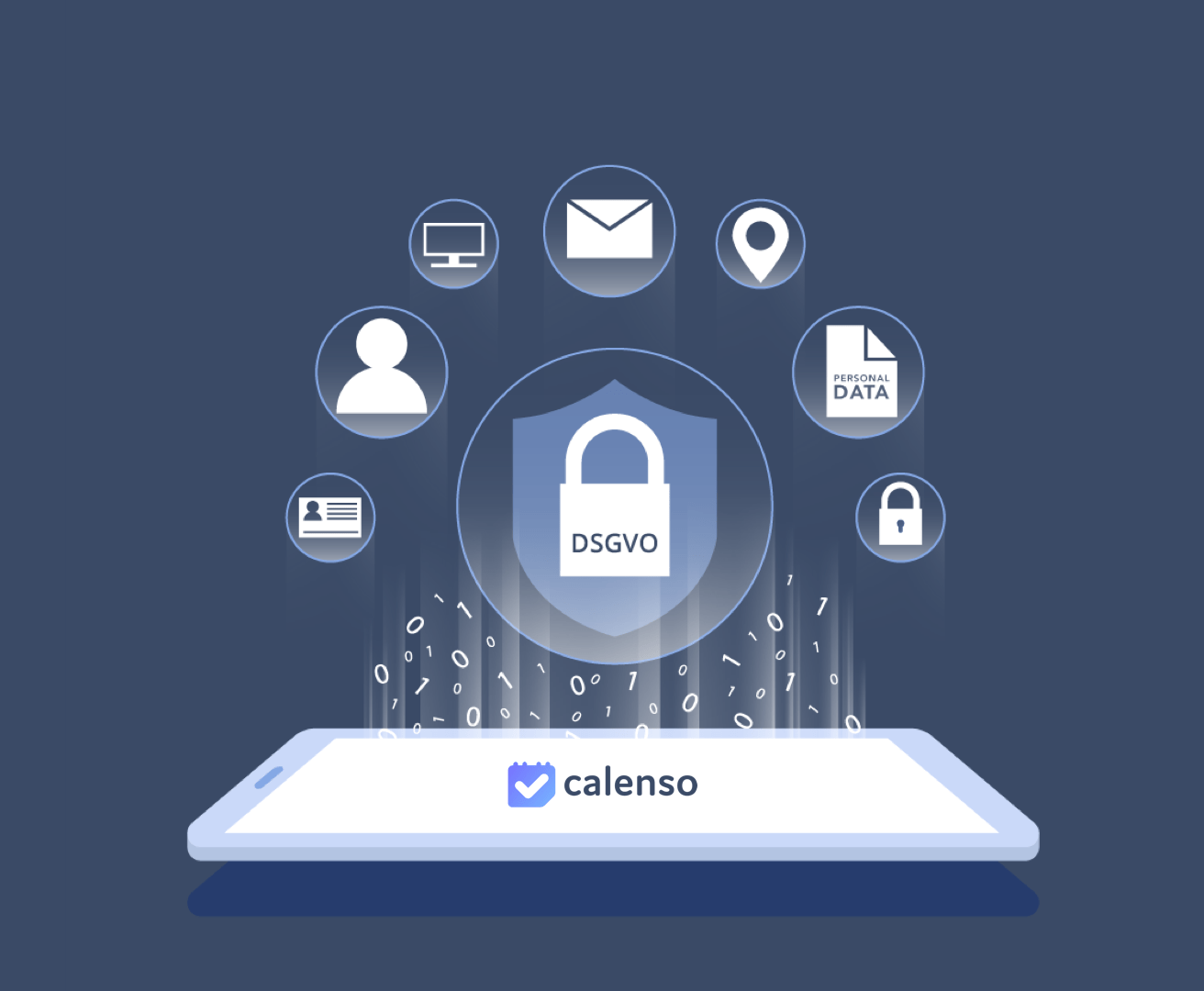In a world where digital communication is becoming increasingly important, protecting the personal data of customers and employees is essential. In this blog, we will inform you about data protection and the GDPR, including applicable laws and regulations, data security best practices and ways to minimize data protection risks. We will also look at the ethical responsibilities of companies in relation to the handling of personal data. Our aim is to help you take the right steps to protect the data of your customers and employees and thus strengthen the trust and loyalty of your customers.

Protection of personal data: The importance of data protection and privacy in the digital world
Personal data is omnipresent in our digitalized world. From online shopping and social media to medical care, we are constantly leaving digital traces. But what exactly is personal data? In simple terms, personal data is information that relates to an identified or identifiable natural person. This includes, for example:
- Name
- Address
- Date of birth
- Phone number
- E-mail address
- IP address
- Health data
Why data protection concerns us all: The importance of protecting personal data in a networked world
Data protection affects everyone, regardless of whether you surf the internet privately or work with personal data professionally. This is because personal data is a valuable asset and its misuse can have serious consequences. The aim and purpose of data protection is to safeguard the fundamental right to informational self-determination of the individual. Everyone should decide for themselves when they should make which personal data accessible to whom and for what purpose. This data is of great value to companies, as it can be used to track and target consumers.
Security for our data
The Federal Data Protection and Information Commissioner(FDPIC) is subordinate to the Confederation. This office is responsible for data processing by federal bodies and private individuals. Data processing by cantonal and communal bodies falls under cantonal law; supervision is the responsibility of the cantonal and communal data protection officers.
The right to privacy: An analysis of the legal basis and provisions for the protection of personal data
It is important to uphold the right to informational self-determination, where the individual should have control over what personal data is shared, when and with whom.
Personal data must be collected and processed in a proportionate and transparent manner and individuals have the right to access their personal data.
The framework conditions for privacy are enshrined in the Universal Declaration of Human Rights (Article 12), the European Convention on Human Rights (Article 8) and the European Charter of Fundamental Rights (Article 7):
- Everyone has the right to have their personal data respected and protected from misuse.
What are the conditions for data processing?
Companies in various industries, such as insurance, medicine or retail, are often dependent on the collection of data. Although the collection and processing of data itself is not prohibited, how companies handle it is crucial. There are certain conditions that must be met in order to be allowed to collect and process personal data.
In order to be allowed to use or request personal data, one of these factors must be present for the processing of the data:
- Express consent
- Performance or preparation of a contract
- Existing legal obligation
- Medical emergency
- Other legitimate interest
Without one of these conditions, the use or collection of data would be inadmissible and could have legal consequences.

Trust is good, data protection is better: How companies can protect personal data and meet the requirements of the GDPR
Data protection affects every department and person in the company. From the HR department to customer service and marketing through to the IT department, numerous employees have to deal with personal data. Accordingly, everyone must be sensitized to the requirements of data protection laws in the company.
Staying in control: How companies can ensure effective data protection oversight and minimize compliance risks
Data protection monitoring is initially carried out by a data protection officer. A data protection officer is a person who is responsible within a company or organization for compliance with data protection laws and the implementation of data protection regulations. Here are some of the key skills and knowledge a data protection officer needs:
- Knowledge of the applicable data protection laws and regulations, such as the General Data Protection Regulation (GDPR) in the EU or the German Federal Data Protection Act.
- Technical knowledge and experience in the field of data security, in particular with regard to securing IT systems, encryption and the protection of personal data.
- Knowledge of data protection risks and threats as well as suitable measures to minimize risks.
- Ability to analyze complex data protection questions and develop appropriate solutions that meet legal requirements and business needs.
- Experience in working with employees to promote awareness and compliance with data protection regulations within the organization.
- Ability to act as an intermediary between the company and data protection authorities, especially when reporting data breaches or cooperating with supervisory authorities.
Overall, a data protection officer must have a broad range of skills and knowledge to ensure that the company or organization complies with all applicable data protection regulations and adequately protects personal data.
The GDPR in practice: challenges and opportunities for companies when implementing the European General Data Protection Regulation
Technological progress in recent years has fundamentally changed the way we live and work. In particular, the enormous increase in data processing and data storage by companies has brought the importance of data protection into focus. The EU General Data Protection Regulation (GDPR), which has been in force since May 2018, aims to improve the protection of personal data. It also aims to create a uniform basis for handling personal data within the EU. Since then, companies have been faced with the challenge of fulfilling the numerous requirements of the GDPR and ensuring adequate data protection.
In this context, it is essential for companies to deal with the legal, technical and organizational aspects of the GDPR in order to ensure compliance with the regulation and maintain the trust of their customers with regard to data protection.
A company faces these fines if it breaches the GDPR
The introduction of the General Data Protection Regulation (GDPR) in May 2018 had a significant impact on how companies handle personal data. In the event of breaches of the GDPR, companies can be subject to heavy fines of up to 4% of their global annual turnover or €20 million, whichever is higher.
Data protection in the digital era: challenges and opportunities for privacy and ethics
In conclusion, data protection in the digital world is essential to protect the privacy and rights of individuals. It is important that we are aware of how we protect our data and what ethical responsibilities companies have when it comes to handling personal data. Whether we are on the internet privately or working with personal data professionally, data protection affects all of us. Companies must ensure that they comply with data protection laws to minimize compliance risks. Overall, data protection is an important factor for success and trust in the digital world.









